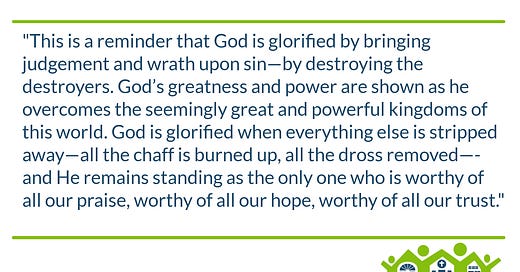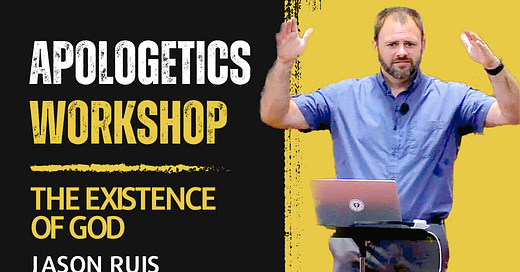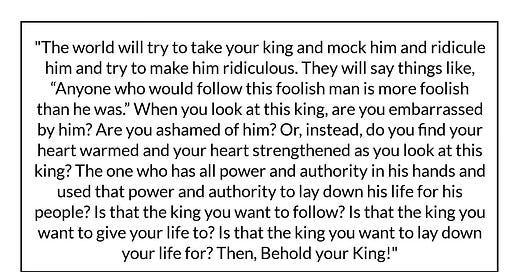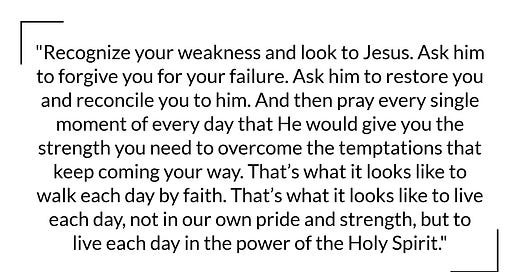
Babylon & Bowls of Wrath
[Read Revelation 18] (Note: We are covering four chapters in this sermon. However, that’s too much to read at once in a worship service. So, I’ve chosen to read the last chapter. I would recommend everyone to read the entire four chapters on their own prior to reading this sermon—or once you get home from church.)
We all like to make comparisons. There’s a tendency to look at the people around us and wonder how we measure up. Are we smarter or stupider than them? Are we prettier or uglier than them? Are we richer or poorer than them? Are we more compassionate than them? Are we… For many, these questions peak during their middle-school and teenage years. However, they don’t disappear completely as we grow up.
There’s a problem with these comparisons. What’s the standard? The standard is the people around you, but that’s a problem. Imagine taking a test in math class. Once you get your papers back, you ask the people around you, “How many did you get right?” They all say, “We got five right.” You begin to feel really good about yourself because you got ten right. You did two-times better than them! You must be really smart. However, you’re ignoring the fact that there were 200 questions on the test and you scored a 5%. And, let's be honest, there’s not much of a difference between 2.5% and 5%.
We do this all the time with sin. We measure ourselves according to the people around us. We think things like, “Well, I drink less than that person. I give more than that person. I attend church more often than that person. I don’t speed like that person. I don’t waste money like that person.” Yet, to be completely honest, none of that really matters. These people are not the standard. God is the standard and he has told us, “You therefore must be perfect, as your heavenly Father is perfect.” (Matthew 5:48, ESV).
When we stop comparing ourselves with God’s standard, and compare ourselves with the people around us, we will always downplay sin. Why? Because we think we’re pretty good. We’re decent people. We’re better than most people, right? It’s not like we’re WICKED SINNERS?!? We’re just friendly, midwestern people.
Then we read chapters like this and cringe. We read chapters where God is pouring out wrath on sin and we think, “Why is God so severe? Man, he needs to lighten up!” Or, we just ignore God’s wrath against sin, joining the popular crowd saying, “Our God is a God of love, not wrath.” WRONG. Our God is a God of love AND wrath—a God who pours out wrath on sin BECAUSE He loves.
God pours out his wrath on sin because sin is evil and wicked and destructive of everything good. We must never forget this. Herman Bavinck says, “The nature of sin is such that it progressively renders sinners more foolish and hard, entangles them ever more firmly in its snares, and propels them ever more rapidly down a slippery slope toward the abyss.” This is true of every sin. Think through the Ten Commandments. One God. No Idols. Don’t misuse God’s name. Remember the Sabbath. Honor your father and mother. No murder. No adultery. No stealing. No lying. No coveting. These are not “just small sins.” These sins are evil, wicked, things that destroy everything good that God has created—including you.
So, God brings judgment and wrath against them. In chapter 16 we see the epitome of these judgements and wrath. This is the third series of seven. We first had seven seals, the judgements increased with the seven trumpets, and now that we’ve reached the seven bowls, God’s judgement has reached some finality. There are no more fractions in these judgements because they are TOTAL. These are the final birth pains, right before the end. God is no longer overlooking/passing-over sin in the world. He is pouring out the fullness of his wrath against that sin.
There are two responses to God pouring out his wrath against sin. Those who have given themselves over to sin respond by cursing God and refusing to repent. This line is repeated throughout the chapter: “They cursed the name of God who had power over these plagues. They did not repent and give him glory.” (Revelation 16:9, ESV). They did not turn from their sin. They did not repent. Instead, they doubled down in their sin and raised their fist against God—cursing Him! This is the repeated picture throughout the book of Revelation. We are given no image of people desiring to be with God, but not being allowed. We are given no image of people trying to turn from their sin, but being judged anyway. No. These people are willingly, resolutely spitting in God’s face and facing the judgement and wrath that come with it.
The other response comes from an angel and God’s people. The angel says,“Just are you, O Holy One, who is and who was, for you brought these judgments. For they have shed the blood of saints and prophets, and you have given them blood to drink. It is what they deserve!” (Revelation 16:5–6, ESV). God’s people in heaven say, “Yes, Lord God the Almighty, true and just are your judgments!” (Revelation 16:7, ESV). Notice how the angel and God’s people respond to God’s wrath being poured out on sin in the world. They do NOT say, “Man, why doesn’t God chill out a bit.” They say, “Yes, this is right and just.” They also say, “It is what they deserve!” (Revelation 16:6, ESV). And if that makes us cringe a bit, it’s because we don’t fully understand the wickedness and evil of sin. We’ve been blinded and downplayed sin. If we saw sin as clearly as the angels and God’s people in heaven, we would not cringe at these statements. We would join them in saying, “Yes, this is just and right. It IS what they deserve.”
We not only see how much God hates sin and pours judgement and wrath out on sin, but we also see through the false promises of sin and idolatry. Sin is tempting because it promises joy and fulfillment. We are tempted to lie because we think it will help us. We are tempted to ignore the Sabbath because we think we will find greater joy somewhere else. We are tempted to adultery because we think we’ll find some greater pleasure. Yet, throughout chapter sixteen, we see each of these sins destroyed by God’s judgement.
And, throughout chapter eighteen, as these idols are toppled, we repeatedly read of people WEEPING. When earthly kingdoms are thrown down—kingdoms people thought were great and mighty and powerful, kingdoms in which they put their hope—we read, “And the kings of the earth…will weep and wail over her when they see the smoke of her burning.” (Revelation 18:9, ESV). Then more people weep and wail as their idols are destroyed. Why are they weeping and wailing? Because they had put all of their hope and dreams and trust in these things AND THEY ARE GONE. They’ve let them down. They didn’t provide on their promises. Their hopes and dreams are destroyed along with these idols. We read, “The fruit for which your soul longed has gone from you, and all your delicacies and your splendors are lost to you, never to be found again!” (Revelation 18:14, ESV).
They realize they have put their trust in the wrong place—in temporary things that will eventually be destroyed. They are told that the things they longed for are gone for good—never to be found again. They things they desired are gone for good—never to be found again. Everything they worked for is gone—never to be found again. And the chapter ends with the haunting refrain “no more,” “no more,” “no more.” “So will Babylon the great city be thrown down with violence, and will be found no more; and the sound of harpists and musicians, of flute players and trumpeters, will be heard in you no more, and a craftsman of any craft will be found in you no more, and the sound of the mill will be heard in you no more, and the light of a lamp will shine in you no more, and the voice of bridegroom and bride will be heard in you no more…” (Revelation 18:21–23, ESV).
This is a sobering reminder for every one of us. If we put our hope and trust in earthly kingdoms—in the United States—we are putting our hope and trust in something that will be destroyed and we will be left weeping and wailing. If we put our hope and trust in entertainment and music and the arts, we are putting our hope and trust in things that will disappear and we will be left weeping and wailing. If we put our hope and trust in our jobs and our work and our money, we are putting our hope and trust in things that will eventually be gone for good—never to be found—and we’ll be left weeping and wailing. These are all false idols that give us no true hope and no true comfort, and they WILL let us down and they WILL be destroyed.
This is why we also read, “Come out of her, my people, lest you take part in her sins, lest you share in her plagues…” (Revelation 18:4, ESV). Like I mentioned last week, we will be tempted to follow the idols of the world around us. We will be tempted to put our hope in trust in things that will let us down. We will be tempted to trust these things more than we trust God. We’re tempted because we are surrounded by people trusting in these things AND we’re constantly measuring ourselves against THEM. So, we say, “Well, I don’t trust in the United States as much as that person” or “I don’t trust in my work/job as much as that person.” Here we’re told to stay away from it. Don’t fall for the sins and temptations of the world around us. Don’t allow yourself to be dragged in. Stay away from it.
Keep your hope and your trust placed on our eternal savior Jesus Christ. He is the only one who will never let you down and will never fade away. Last week we talked about our temptation to worship the beast, but this week we’re reminded that, “They will make war on the Lamb, and the Lamb will conquer them, for he is Lord of lords and King of kings, and those with him are called and chosen and faithful.” (Revelation 17:14, ESV). The beast will not win this battle. The idols will all fall. Because Jesus Christ is King of kings and Lord of lords. He will never stumble or fade away. He is the only one worthy of all our hope and trust. Everything else will pass away, but He’s not going anywhere!
And that’s why He is glorious and worthy of all our praise. In the midst of all this judgement and wrath and war, we hear God’s people singing another song. They sing, “Great and amazing are your deeds, O Lord God the Almighty! Just and true are your ways, O King of the nations! Who will not fear, O Lord, and glorify your name? For you alone are holy. All nations will come and worship you, for your righteous acts have been revealed.” (Revelation 15:3–4, ESV). After this song is sung, the bowls of wrath are handed out and the sanctuary is filled with God’s glory.
This is a reminder that God is glorified by bringing judgement and wrath upon sin—by destroying the destroyers. God’s greatness and power are shown as he overcomes the seemingly great and powerful kingdoms of this world. God is glorified when everything else is stripped away—all the chaff is burned up, all the dross removed—and He remains standing as the only one who is worthy of all our praise, worthy of all our hope, worthy of all our trust.
But there’s one more important reminder in these chapters. As we watch bowl after bowl after bowl of wrath poured out upon sin, as we get uncomfortable with the seeming severity of that wrath and judgment against sin, let us not forget that WE ALSO deserve that judgement and wrath. Because of our own sin, and our own rejection of God, we deserve to have these bowls of wrath poured out upon us. THAT’s how serious our sin is. THAT’s what we deserve.
And, THAT’s what Jesus bore on the cross. Bowl after bowl after bowl of wrath was poured out on a sinless Savior. He took our place—bore the wrath—so that our sins could be forgiven when we put our faith and trust in Him alone. Let us never forget that.









